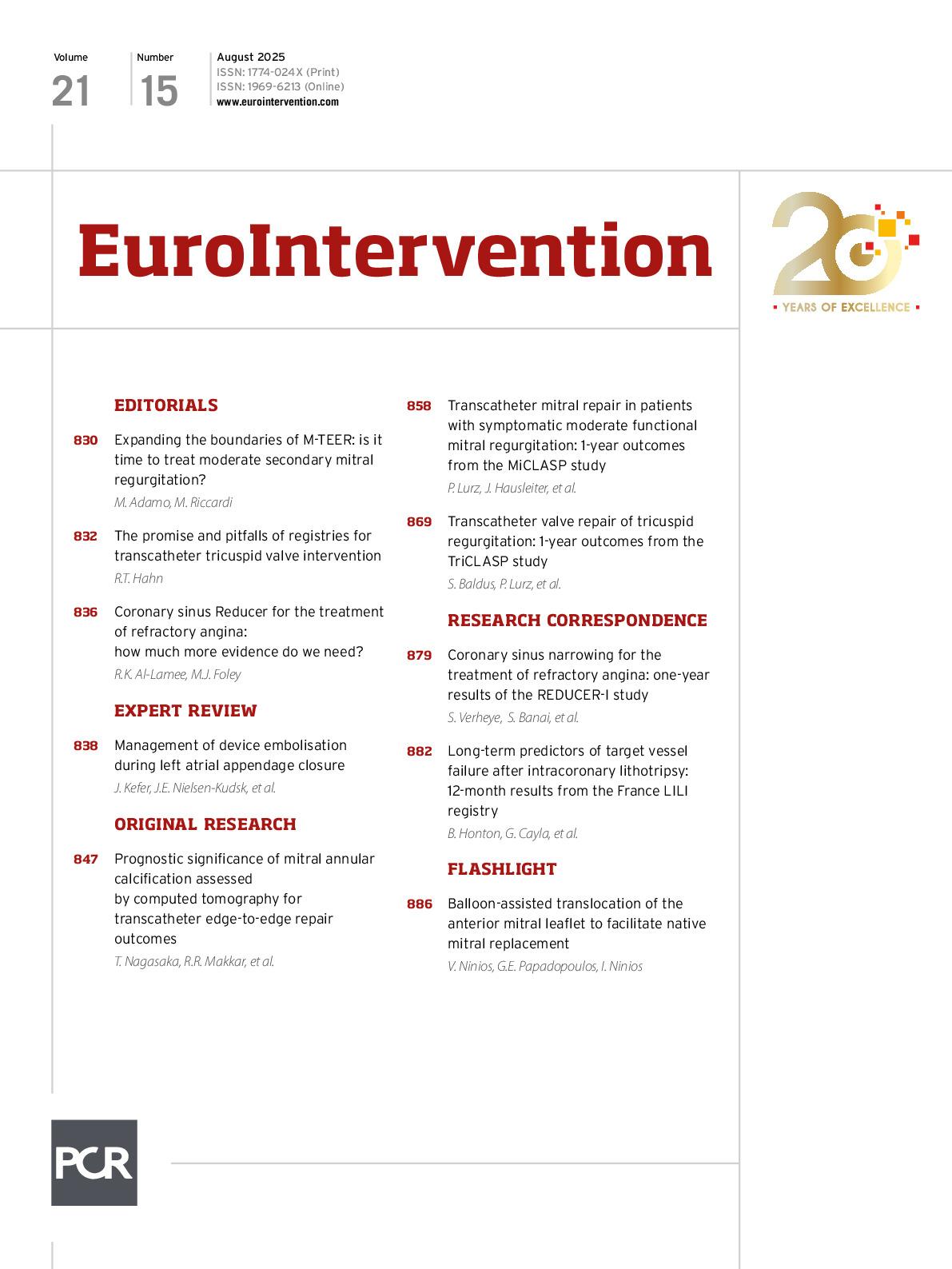The two randomised controlled trials (RCTs) of transcatheter tricuspid valve intervention (TTVI) devices12 failed to show improvements in mortality or heart failure hospitalisation (HFH), leading to numerous unanswered questions about the benefits of device therapies for severe, symptomatic tricuspid regurgitation (TR). The outcomes of these trials were driven by symptomatic improvement and patient-reported outcomes measured by the Kansas City Cardiomyopathy Questionnaire overall summary (KCCQ-OS) score, which showed marked improvements that correlated with the degree of TR reduction, thus giving it biological credence34. However, following U.S. Food and Drug Administration approval of the EVOQUE transcatheter tricuspid valve replacement system (Edwards Lifesciences) and TriClip (Abbott), the Centers for Medicare & Medicaid Services called for more evidence of benefit for a wider range of patients.
Given the clinical availability of TTVI devices, another randomised trial seems a pipe dream, although one randomised study is enrolling: the Deutsches Zentrum für Herz-Kreislauf-Forschung (DZHK) TRICI-HF trial (ClinicalTrials.gov: NCT04634266). The trial is a German multicentre, industry-independent strategy trial randomising patients 2:1 to TTVI with optimal medical therapy (OMT) versus OMT alone. The trial...
Sign up for free!
Join us for free and access thousands of articles from EuroIntervention, as well as presentations, videos, cases from PCRonline.com

